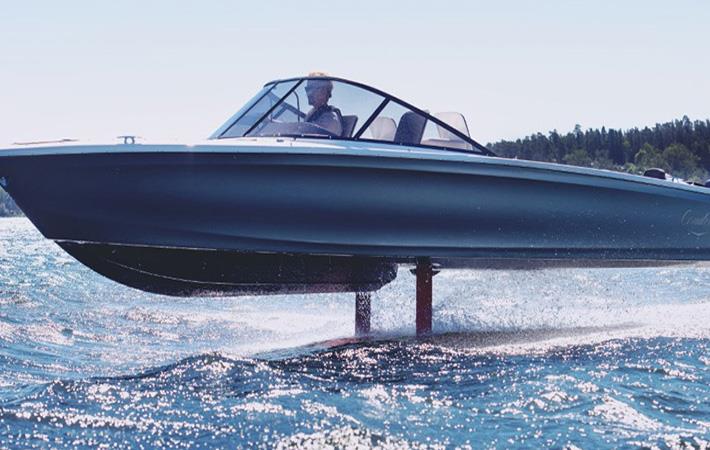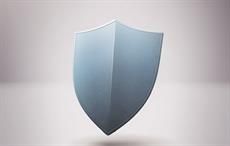Sicomin’s epoxy infusion resins and adhesive products have qualified for the series production of Candela’s new all-electric foiling boat. The boat is around 45-50 per cent lighter than a traditional glass fibre fossil fuel powered boat. Bonding of its internal structures and final assembly has been done using Sicomin’s epoxy adhesive, Isobond SR7100TH.
Crafted in Sweden, the Candela 7 is a stylish 7.7m open motorboat that combines carbon fibre construction and hydrofoils to create a near silent 100 per cent electric craft with a range of 50 nautical miles (at 25 knots) on a single charge. Absolute focus on weight reduction is the key to this game changing performance. With a wet weight of only 1300 kilogram, the Candela is around 45-50 per cent lighter than a traditional glass fibre fossil fuel powered boat.Sicomin's epoxy infusion resins and adhesive products have qualified for the series production of Candela's new all-electric foiling boat. The boat is around 45-50 per cent lighter than a traditional glass fibre fossil fuel powered boat. Bonding of its internal structures and final assembly has been done using Sicomin's epoxy adhesive, Isobond SR7100TH.#
Composite engineering work by Candela’s design and engineering team - experts with backgrounds in aeronautics, composites, foiling yachts and automotive engineering - delivered a fully foiling carbon fibre hull and deck structure capable of supporting the 230 kilogram battery pack whilst only weighing 240 kilogram itself.
Sicomin joined the project at an early stage, working with Candela to supply high-performance epoxy laminating resins for the manufacture of the initial prototype vessels. With the ramp up of series production, the company has also been able to support Candela’s targets to industrialise the production process, providing materials and process support that are then validated with extensive on the water testing.
By switching the epoxy system for the hull and deck to Sicomin’s SR1710 infusion product, Candela benefits from a cleaner and more consistent process technology whilst also producing laminates with extremely high mechanical properties and an impressive Tg of 100ËšC after post cure. SR1710 has also been shown to deliver excellent performance in hot and wet conditions, critical for Candela in such a highly loaded foiling craft.
Bonding of the Candela 7’s internal structures and final assembly of the finished craft has been designed around Sicomin’s flagship epoxy adhesive, Isobond SR7100TH. Formulated for both thick and thin bond lines, SR7100TH comes with several different hardener speeds and provides a user-friendly bonding solution that is particularly resistant to micro-cracking in long term fatigue testing.
In common with other key marine sector focused products in the Sicomin range, both SR1710 and Isobond SR7100TH carry DNV-GL Type Approval providing a reassuring third party confirmation of the products’ quality, performance and consistency.
“Working with so many complex materials and products to assemble the Candela 7, it is vital that we partner with the best suppliers,” commented Teodor Hällestrand, product manager, Candela. “Sicomin, with their DNV-GL approved products and fantastic technical support are the perfect fit for an innovative and evolving company like us.”
Candela’s five boats have already been delivered in Europe.
Fibre2Fashion News Desk (SV)


